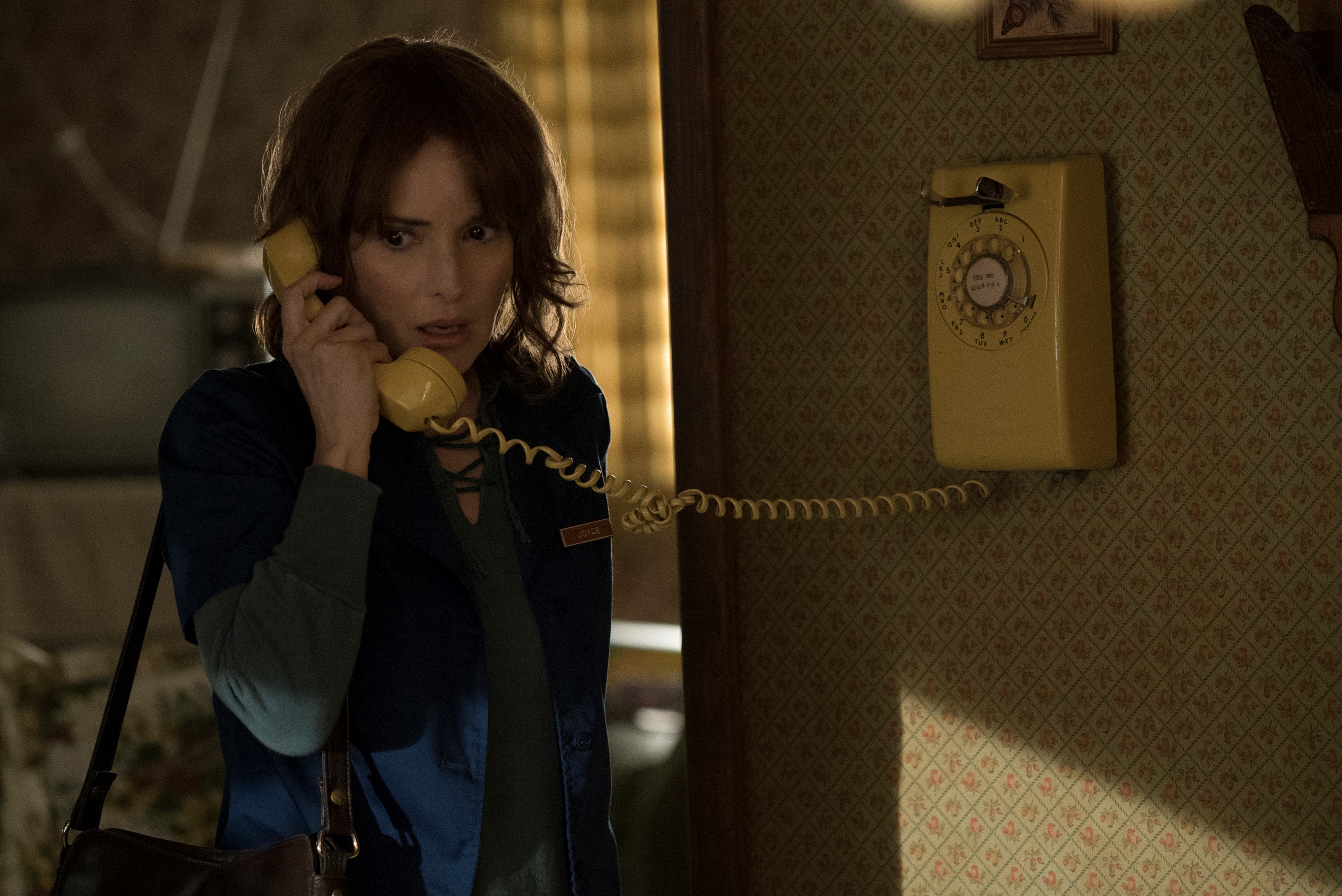Of all of the Netflix Original Series so far, Stranger Things feels like the most attuned to the binge-watching model. Despite their serialized natures, series like Orange is the New Black and House of Cards are still relatively episodic, giving each hour some semblance of its own story. Stranger Things, though, feels like an 8 hour movie. The episodes give the viewer decent stopping points, but there’s never any suggestion that the show is meant to be consumed one episode at a time. The show’s creators, the Duffer Brothers, mean to hook you at the start and keep you attached until the very end.
They’re quite successful, too. It’s true that Stranger Things borrows from a whole host of 80s movies, especially those written and directed by Stephen King and Steven Spielberg: ET, Close Encounters of the Third Kind, It, The Goonies, The Shining, and more. The influence of other filmmakers can be felt as well; the teenage storyline feels like a direct engagement with the work of John Hughes, and the creature designs are inspired by the work of John Carpenter (this connection is even directly acknowledged when a couple characters are watching The Thing on TV). But just making a series of nostalgic references doesn’t make for good TV. The most impressive aspect of Stranger Things is how engaging its individual storylines are and how perfectly it weaves them together in its later chapters.
It does this by centering the show’s universe around a character who barely appears in the series: Will Byers, who is taken (and possibly killed) by a mysterious monster in the opening moments of the series. This means that the show is free to explore the stories of everybody who was close to Will. We follow his friends as they take in a strange young girl with telekinetic abilities, his teenage sister as her romantic endeavors give way to more pressing concerns, and his mother as she seeks to prove beyond all reason that her son is still alive.
All three major plotlines flourish, thanks to the writers’ ability to adapt their voice to wildly different characters. While I’m sure that they looked to the 80s movies mentioned above for inspiration, there’s an authenticity to the way that characters speak here that, while out of time, still resonates. The kids possess an intelligence not often seen in modern films, existing in a world with their own code of integrity, still innocent but capable in their own right. Nancy, Will’s sister, is also given a fair portrayal, somewhat naive when it comes to relationships, but also far more mature than the town’s adults give her credit for. Meanwhile, the adults and their arcs are very well-handled, particularly with David Harbour’s Jim Hopper, whose weary acceptance of the familiar world around him slowly gives way to something new and terrifying.
The acting also goes a long way toward making the show work. Winona Ryder puts in one of her best performances in years as Joyce Byers, Will’s mother, and the only character who is open to the supernatural from the start. The aforementioned David Harbour is also excellent, channeling Jack Torrance of The Shining if he had given up on writing and become the sheriff of a small town. The children are across-the-board terrific, with Finn Wolfhard and Millie Bobby Brown standing out the most as Mike and Ellie, respectively. Millie has very few lines of dialogue, but her ability to emote a wide range of emotions is far beyond her years. Finn’s role is less showy, but still impressive, and very true to the way that children can emotionally turn on a dime.
Finally, the show simply wouldn’t work without its mastery of tone. Despite the wildly different types of stories being told, the Duffer Brothers (and Shawn Levy, who shows up to direct two episodes) manage to keep the look, feel, and sound of the show consistent throughout. Not only does this help the show function on an episode-to-episode basis, it is absolutely crucial in the late stages of the season. The stories begin to intertwine far more, but the merging never feels forced. In fact, it feels so natural that it recontextualizes the earlier episodes of the series. This was always part of the design, and the series’ exciting conclusion feels like the correct endpoint for each individual plotline.
Stranger Things is incredibly easy to recommend. There’s something for just about everybody, it’s extremely satisfying in its storytelling, and it feels complete while still suggesting that there’s more to come. It may not be the most original, artful, or socially relevant piece of television this year, but it is perhaps the most addictive and the most widely-enjoyable. If you find yourself with eight free hours, just sit back and let yourself get absorbed.

Good take on this. We’ve been enjoying it so far